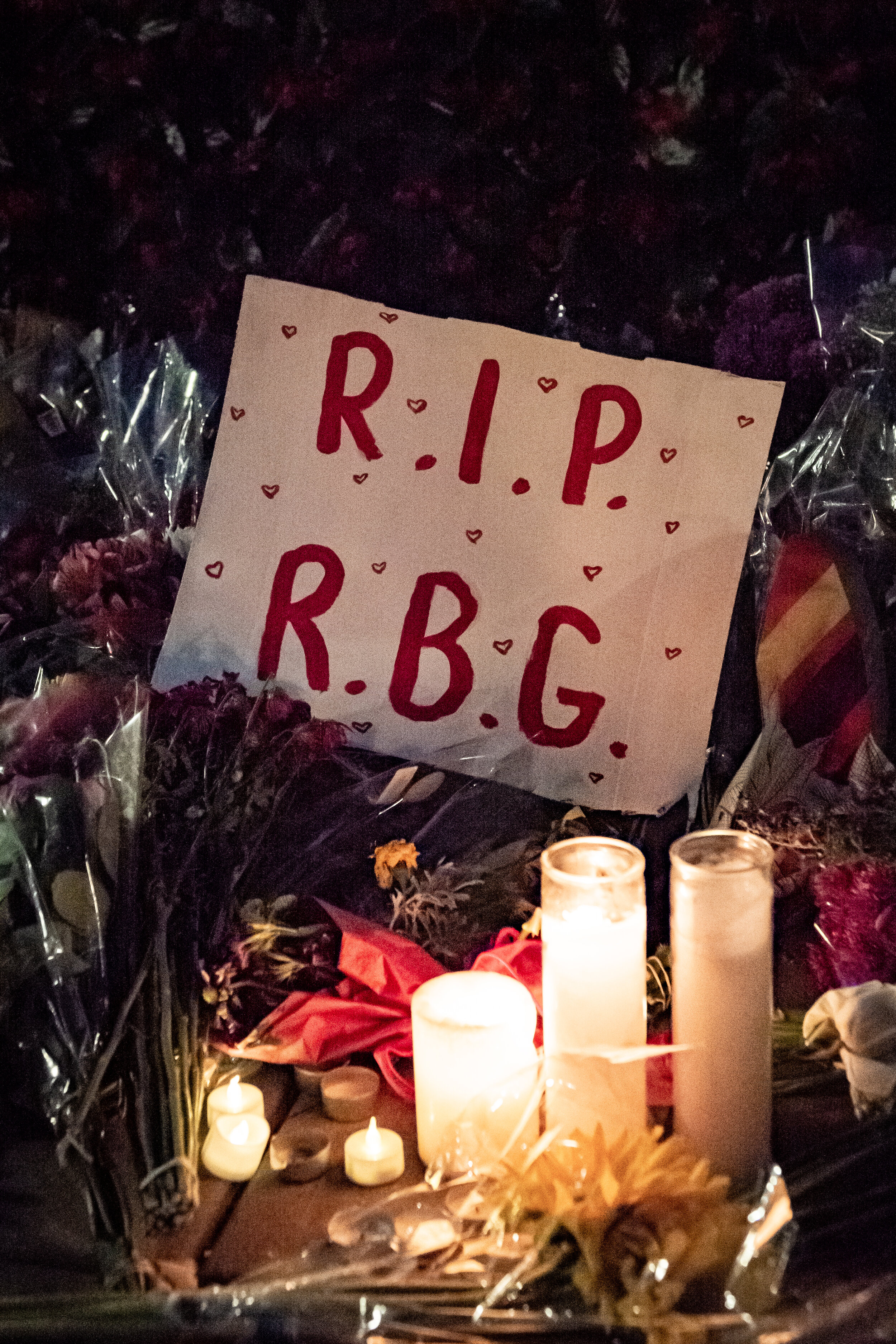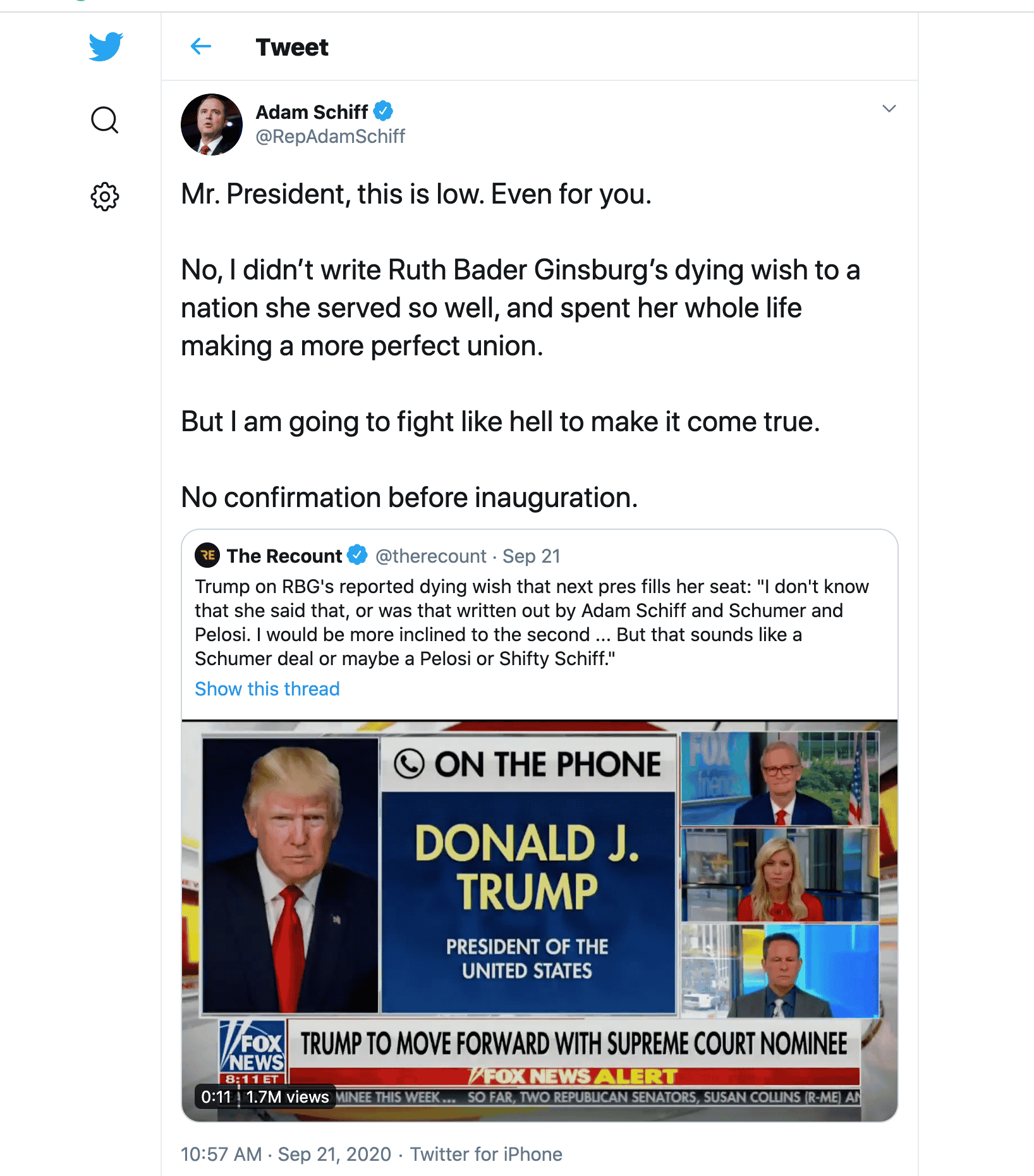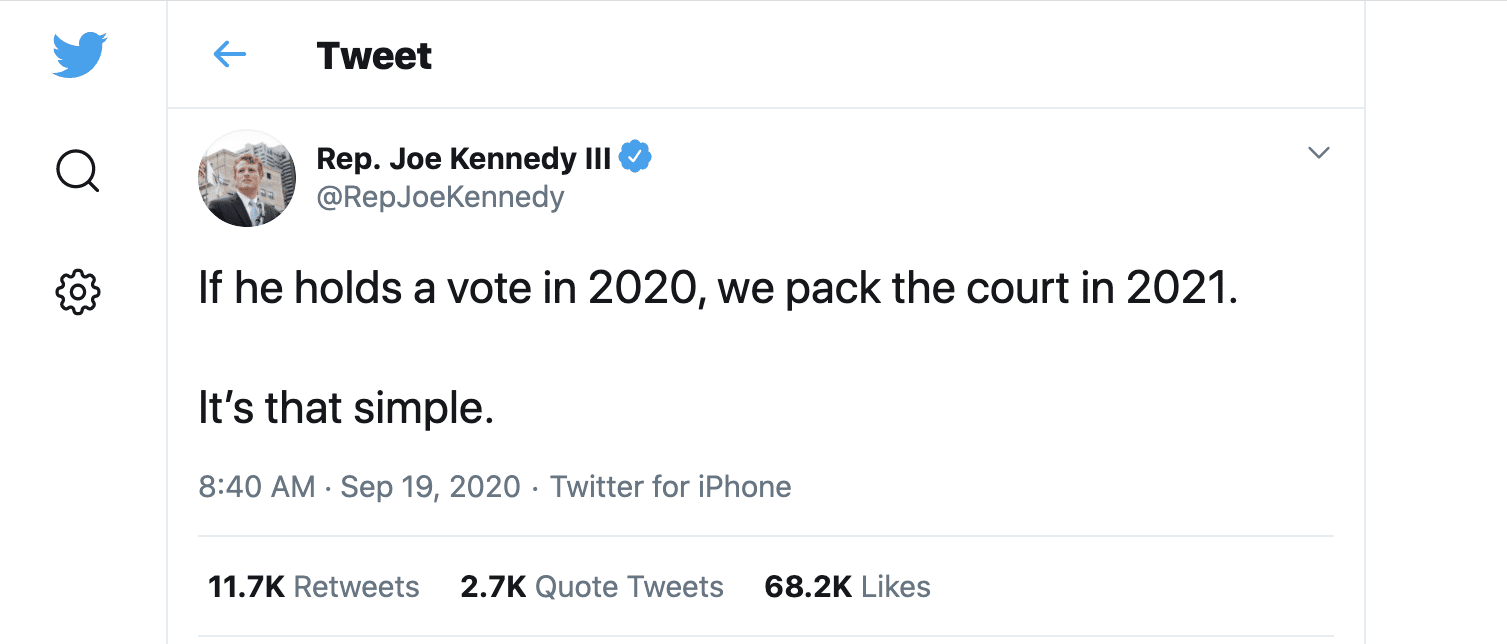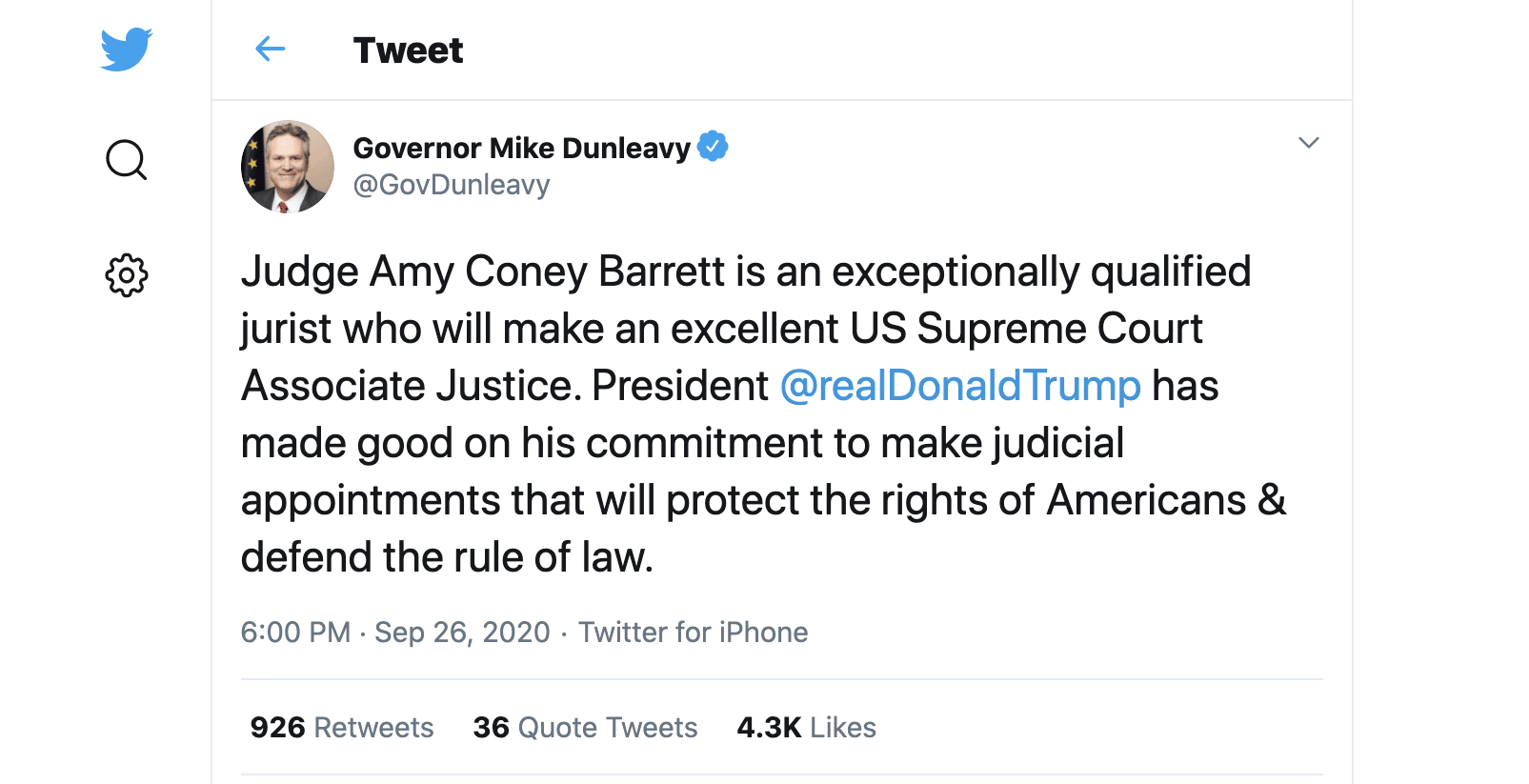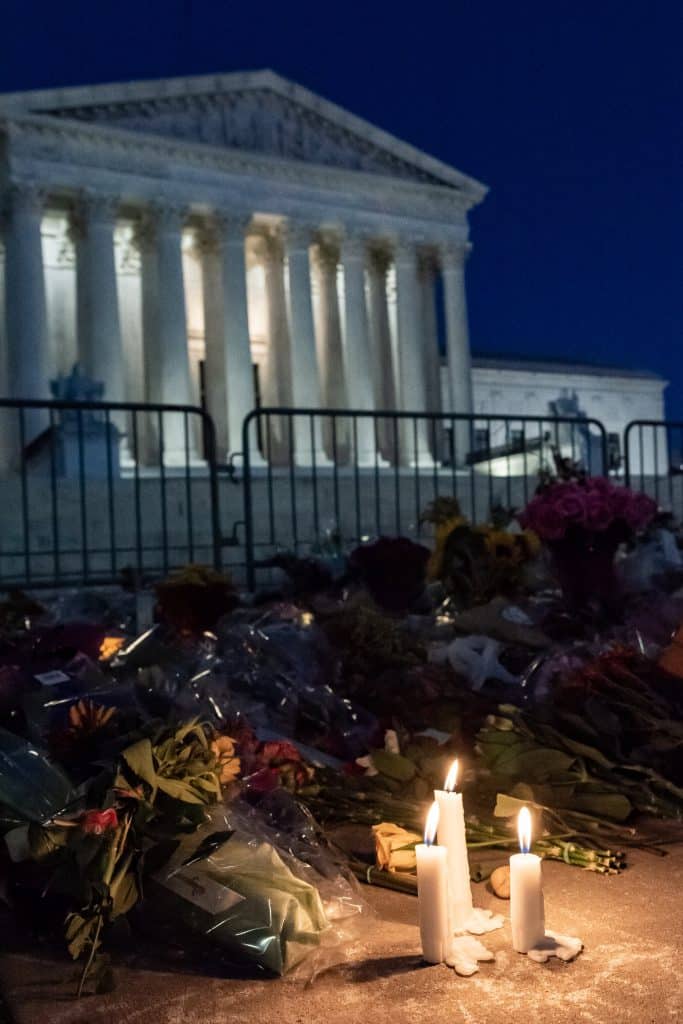
RIP RBG: The passing of the 107th Supreme Court Justice creates added controversy before the election
Samantha Martin, Staff Writer
Unsplash.com
On Sept. 18, 2020, Supreme Court Justice Ruth Bader Ginsburg passed away in her home due to complications of metastatic pancreatic cancer. She was the 107th Supreme Court justice and served for 27 years.
One of the most notable cases that Ginsburg presided over while on the Supreme Court was United States v. Virginia in 1996, which she authored the opinion for. The ruling struck down the Virginia Military Institute�s male-only admissions policy as it violated the Equal Protection Clause of the 14th Amendment.
She was also well known for her advocacy of LGBTQ+ rights and her statements during oral arguments of the 2015 Obergefell v. Hodges case.
Her passing brought a new focal point to the 2020 political field: Fill the seat, or not?
According to Ginsburg�s granddaughter, Clara Spera, in her dying days she said, �My most fervent wish is that I will not be replaced until a new president is installed.�
President Trump has since received political blowback through the media as he pushed forward with a Supreme Court nominee.
�Mr. President, this is low. Even for you. No I didn�t write Ruth Bader Ginsburg�s dying wish to a nation she served so well, and spent her whole life making it a more perfect union. But I am going to fight like hell to make it come true. No confirmation before inauguration,� said Congressman Adam Schiff, a representative from California in a tweet on Sept. 21.
Screenshot taken by Samantha Martin
This response brings to question: Is pushing forward with a nominee and potentially confirmation wrong in this case as it goes against the final wishes of Ginsburg? Or is this a case of responsible leadership?
�It is the job of the president to nominate someone to the court. It is the job of the Senate to confirm that nominee,� said NGU Assistant Professor of History Brendan Payne.
Trump has done his duty as commander in chief and nominated Amy Coney Barrett, a circuit judge currently serving on the Seventh Circuit Court of Appeals. And it is the responsibility of the Senate to approve this nominee. But there are some that do not recognize this process as legitimate and publicly said they would not continue as normal.
�I will refuse to treat this process as legitimate and will not meet with Judge Amy Coney Barrett,� said Senator Richard Blumenthal of Connecticut in a tweet on Sept. 26.
Screenshot taken by Samantha Martin
Despite this tweet, Senator Blumenthal did in fact meet with Judge Barrett on Monday, Oct. 12.
There were also instances of Democrats vowing to expand the size of the court if Barrett is pushed through and they win the presidency and Senate in November.
�If he holds a vote in 2020, we pack the court in 2021. It�s that simple,� said Joe Kennedy III who represents Massachusetts� 4th Congressional District, in a Sept. 19 tweet.
Screenshot taken by Samantha Martin
On Sept. 21, Kennedy went on to say, �To the right wing trolls tuning in, legitimizing the court isn�t radical, it�s constitutional and the only way to undo the damage to our democracy caused by McConnnell.�
Screenshot taken by Samantha Martin
Kennedy has a small point here, expanding the court would not go against the Constitution.
�Legally, there�s no problem, but as you point out, the problem is precedent, and even in 1937 when Roosevelt was pretty popular, after having two landslide presidential elections, there was great pushback to his court packing scheme,� said Payne.
Roosevelt got what he wanted of course by passing laws offering a severance package to members of the court when they retired. This in turn allowed him to pack the court with liberals, and it was only late in the 20th century that a conservative majority happened again.
�So I would say it would seem to be a 6-3 conservative court, but I would argue it�s really more of a court with two conservative moderates, three liberals and three conservatives,� said Payne.
In fact the history of the court is sprinkled with varying numbers of seats. Early in the court’s history, there have been as few as six; during the Reconstruction era, there were more than nine.
Though there have been a fair number of negative statements and outright refusals to answer questions about court packing from the Democrat presidential ticket, there are others that support Barrett�s nomination and have faith in her skills.
�Judge Amy Coney Barrett is an exceptionally qualified jurist who will make an excellent U.S. Supreme Court Associate Justice. President @realDonaldTrump has made good on his commitment to make judicial appointments that will protect the rights of Americans and defend the rule of law,� said Governor Mike Dunleavy of Alaska in a Sept. 26 tweet.
Screenshot taken by Samantha Martin
Barrett took her nomination ceremony in the Rose Garden to address the people of the United States.
�If confirmed, I would not assume that role for the sake of those in my own circle, and certainly not for my own sake; I would assume this role to serve you,� said Barrett.
A week before the presidential election, the Senate confirmed Barrett to the U.S. Supreme Court.
